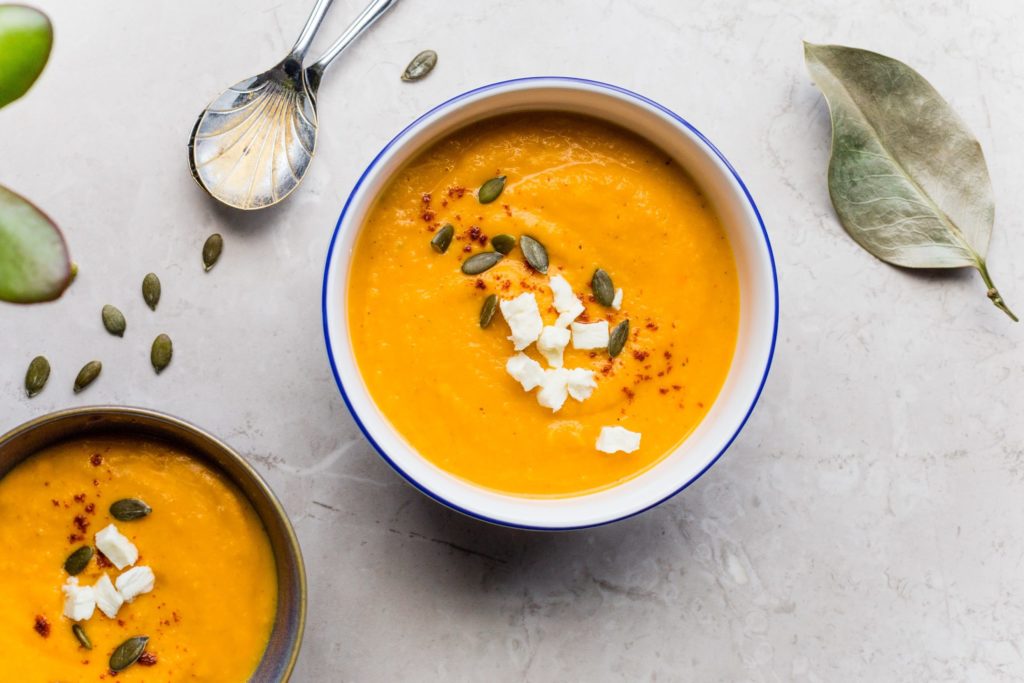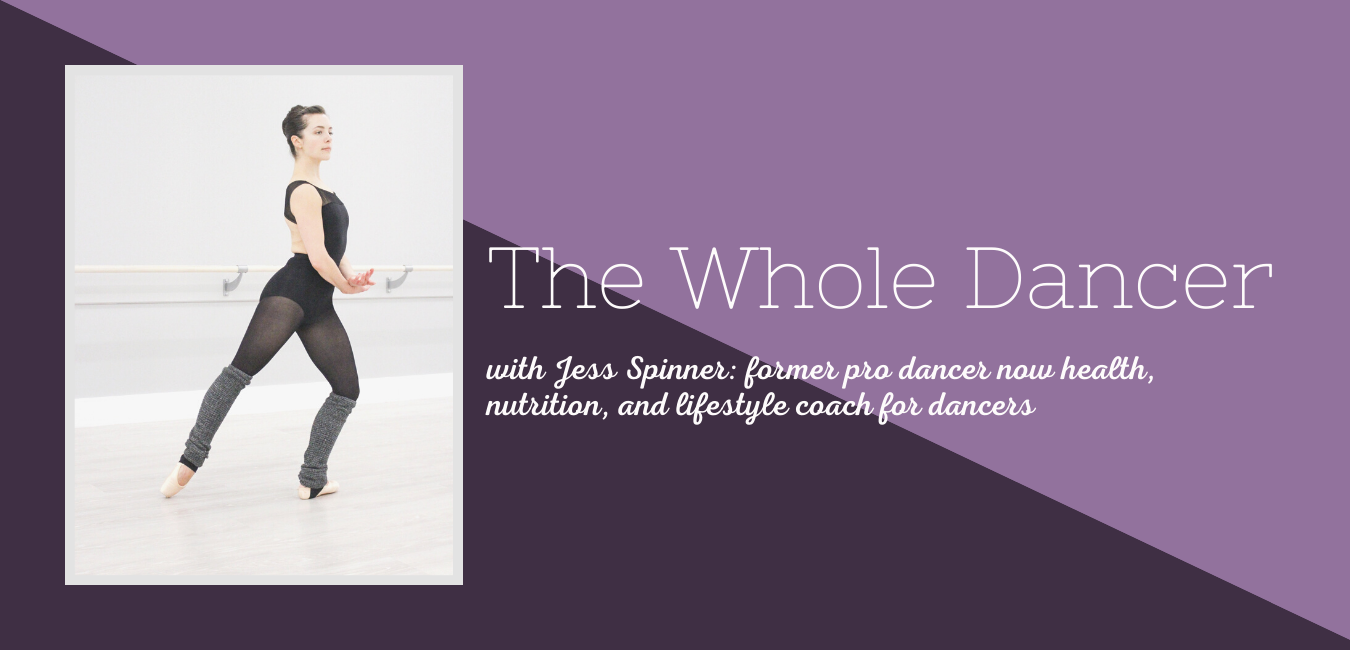Let’s talk about nutrition for dancers and what you really need to know.
You don’t have to be an expert in nutrition…
Nutrition for Dancers is an important topic but you don’t have to be an expert in nutrition to reach your personal best body. Hopefully you find that reassuring. You don’t have to study up on nutrition science or know exactly what each macronutrient (protein, carbs, fat) or micronutrient (vitamins and minerals) does for your body.
If you’ve got a desire to dive into nutrition for dancers, have at it. Make sure you’re learning from accurate sources like text books or scholarly articles. Diet books are skewed to whatever the authors beliefs are and while it’s possible they’ve conducted studies around their beliefs, many have not.

Remember, if you look to nutritional studies for information, some are funded by food lobbyists. “A 2007 review of 206 studies that looked at the health benefits of milk, soda, and fruit juices found that those sponsored entirely by a food or beverage company were four to eight times more likely to show positive health effects from consuming those products.”1
There are times you’ll find nutritional advice based upon the findings from such studies. The sugar industry has tons of money, whereas the producers of fruits and vegetables do not. Something to keep in mind when you do your research.
Instead of being an expert in nutrition, you have to become an expert on how food works for YOUR body.
Becoming an expert on YOU
When you consider nutrition for dancers and what you really need to know, the most important factor is you. Pay attention to how food makes you feel. It’s so common to ignore digestive disturbances or to just get used to them. So many people feel sick, bloated, or uncomfortable after consuming dairy, but it’s become so normal, they don’t think twice about it.
You might also have a different tolerance for some foods than your friends. Sugar sometimes gives me a headache, even in small quantities and when paired with trail mix. In response, I stay mindful of this and try to eat less of it.
Have high standards for your fuel
Food quality is important. Learn about where your food comes from. If you eat meat or eggs, look for grass-fed and pasture-raised options. If you have a sweet tooth, be discerning about the ingredients in your sweets. Avoiding processed sugar and high-fructose corn syrup can help you perform at a higher level.
A couple of dancer chats I always come back to when I think about the importance of high quality fuel for dancers are Shelby Elsbree, formerly Boston Ballet and Jenelle Manzi, New York City Ballet.
In the first workshop ever presented by The Whole Dancer, Shelby Elsbree said, “If you’re eating these whole foods and superfoods for your body, you will be full, you will be satisfied, and you won’t be craving processed foods as much.”
New York City Ballet dancer Jenelle Manzi dealt with injury and inflammation. Then, she saw the impact of her food choices. Regular sweets and indulgences don’t work for Jenelle. That’s why she combined indulgent and functional foods. As she shared, “functional foods provide your body with nutrients and help you to feel your best, look your best, and perform your best.”
Increase your knowledge of macros
Protein, carbs, and fat are the macronutrients that make up food. There’s often a debate about which you should eat the most often. There are diets out there that highlight each one. Some say eating more carbs will help you perform your best while others promote more protein or fat.
“..A wide variety of diets have been proposed accentuating or minimizing each macronutrient to achieve a desired effect on appetite and/or energy intake. Common experience over the past six decades reveals none has been widely successful.”2
For most, a balance of macronutrients is going to help you feel satisfied and energized, and you’ll maintain your health; therefore, it’s helpful to have an idea of what macros are found in the foods you’re eating most often.
This knowledge will help you to create balanced meals and adjust your food as necessary. You might find that more dietary fat helps you feel more satiated. For others, increased protein leads to greater feelings of satisfaction. When you start to have those insights, you can adjust your meals accordingly.
Nutrition info means nothing if you’re not relating to food and your body in a positive way…
The most common thing I see dancers doing is not eating enough. When you undereat, you do your body a disservice.
If you hate what you see in the mirror, you’re not going to reach body goals. When you’re stressed out, your relationship with food can get crazy. The pressures of pursuing dance pre-professionally and professionally can be overwhelming.
Instead of placing too much focus on the food, put the focus on cultivating a positive mindset. Then, make your healthy choices taste amazing, and you’ll start to find balance.
Nutrition for dancers, what you really need to know.
- Moodie, Alison). “Before You Read Another Health Study, Check Who’s Funding the Research.” The Guardian, Guardian News and Media, 12 Dec. 2016, www.theguardian.com/lifeandstyle/2016/dec/12/studies-health-nutrition-sugar-coca-cola-marion-nestle.
- Carreiro, Alicia L, et al. “The Macronutrients, Appetite, and Energy Intake.” Annual Review of Nutrition, U.S. National Library of Medicine, 17 July 2016, www.ncbi.nlm.nih.gov/pmc/articles/PMC4960974/.
Photo by Cayla1 on Unsplash

Pingback:Why Healthy Fat won't make you Fat - The Whole Dancer
Pingback:Ideal Height Weight Chart for Dancers - The Whole Dancer
Pingback:The Importance of Nutrition for Dancers - The Whole Dancer
Pingback:Dancer’s Guide to Snacking - The Whole Dancer
Pingback:Breakfast Nutrition for Dancers - The Whole Dancer
Pingback:Dancers and Plant-Based Eating Plans - The Whole Dancer